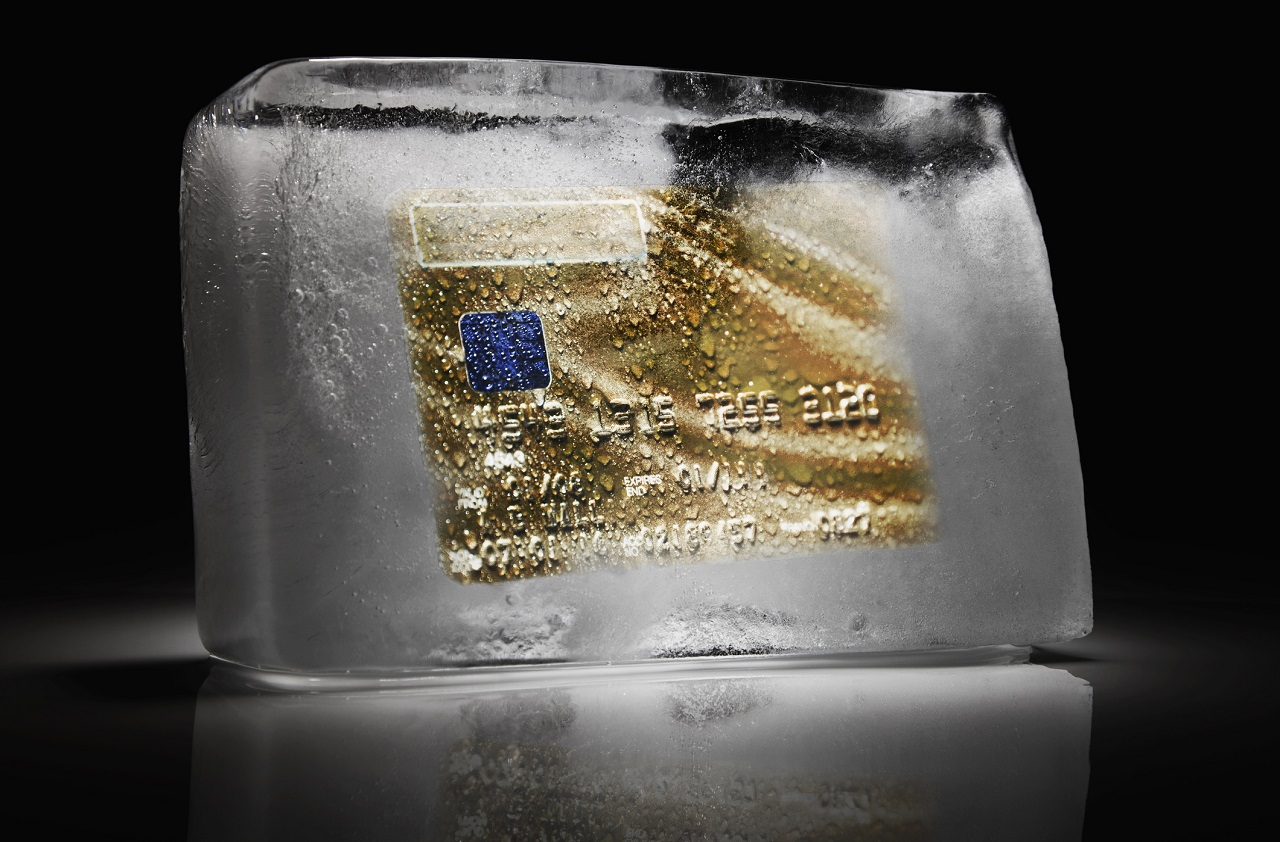Did You Freeze Your Credit? Watch Out for These Pitfalls
If you put your credit reports on ice, watch out for these slippery spots.


Profit and prosper with the best of Kiplinger's advice on investing, taxes, retirement, personal finance and much more. Delivered daily. Enter your email in the box and click Sign Me Up.
You are now subscribed
Your newsletter sign-up was successful
Want to add more newsletters?

Delivered daily
Kiplinger Today
Profit and prosper with the best of Kiplinger's advice on investing, taxes, retirement, personal finance and much more delivered daily. Smart money moves start here.

Sent five days a week
Kiplinger A Step Ahead
Get practical help to make better financial decisions in your everyday life, from spending to savings on top deals.

Delivered daily
Kiplinger Closing Bell
Get today's biggest financial and investing headlines delivered to your inbox every day the U.S. stock market is open.

Sent twice a week
Kiplinger Adviser Intel
Financial pros across the country share best practices and fresh tactics to preserve and grow your wealth.

Delivered weekly
Kiplinger Tax Tips
Trim your federal and state tax bills with practical tax-planning and tax-cutting strategies.

Sent twice a week
Kiplinger Retirement Tips
Your twice-a-week guide to planning and enjoying a financially secure and richly rewarding retirement

Sent bimonthly.
Kiplinger Adviser Angle
Insights for advisers, wealth managers and other financial professionals.

Sent twice a week
Kiplinger Investing Weekly
Your twice-a-week roundup of promising stocks, funds, companies and industries you should consider, ones you should avoid, and why.

Sent weekly for six weeks
Kiplinger Invest for Retirement
Your step-by-step six-part series on how to invest for retirement, from devising a successful strategy to exactly which investments to choose.
After a data breach at credit agency Equifax exposed the personal data of nearly 146 million Americans last year, you may have hurried to freeze your credit reports to help prevent identity theft. A credit or security freeze prohibits new lenders from viewing your credit report. In turn, a thief who attempts to use your Social Security number and other personal information to apply for a credit card or loan is unlikely to succeed (see Freeze Your Credit in 3 Steps).
But a freeze can also cause headaches for you. You probably know that you must temporarily lift a freeze when you shop for credit. Several other entities, however, ranging from insurers to employers to the IRS, may rely on data from your credit report (see The Equifax Data Breach: What You Should Do).
If you must lift your freeze, ask the institution which credit agency's report it checks. You may get away with removing the freeze at only one of the major agencies rather than all three (Equifax, Experian and TransUnion)—and that could save you money if you must pay a fee each time you lift the freeze. Be prepared for these potential sticking points.
From just $107.88 $24.99 for Kiplinger Personal Finance
Become a smarter, better informed investor. Subscribe from just $107.88 $24.99, plus get up to 4 Special Issues

Sign up for Kiplinger’s Free Newsletters
Profit and prosper with the best of expert advice on investing, taxes, retirement, personal finance and more - straight to your e-mail.
Profit and prosper with the best of expert advice - straight to your e-mail.
Opening a bank account. When you apply for a checking or savings account, the bank or credit union may use your credit report to verify your identity. Depending on the institution, you don't necessarily have to remove your freeze. With PNC, for example, a freeze may only prevent you from opening an account online. If you'd rather not thaw your report, you can visit a branch office to confirm your identity, says Amy Vargo, a PNC spokeswoman. But at U.S. Bank, new customers have to lift the freeze to sign up for a checking account, even at a branch. Bank of Internet USA, an online bank, also requires customers to remove a freeze before opening an account. "There is no other way around it," says Elise Yung, senior vice president of consumer banking. "We are encountering this issue more and more frequently."
Signing up for insurance. Except in a few states where the practice is prohibited, auto and home insurers may check an insurance score based on your credit when determining premiums. In some states, you may need to thaw one or more of your credit reports to help ensure that you get the lowest possible rate; in most states, however, insurers can review your credit even when a freeze is in place (see Will a Credit Freeze Boost Car Insurance Premiums?).
In other cases, your credit report may be tapped for identity verification. HealthCare.gov, which offers health insurance through the provisions of the Affordable Care Act, relies on Experian credit report data to generate questions that online applicants answer to prove their identities. So those who have frozen their credit reports can’t go through the standard security process. Rather than unfreeze their Experian report, enrollees can upload or mail in documents, such as a copy of their driver’s license, passport or voter registration card, as proof of identity.
Checking your credit score. Some services that periodically generate a credit score based on the data in your credit report will continue to operate after you set up a freeze (although you usually must remove the freeze when you enroll). But others won't function. Discover’s Credit Scorecard offers a free FICO score and data from your Experian credit report, updated monthly, to all consumers. If you do not have a Discover credit card or bank account, however, the service will not refresh your scorecard after you freeze your credit report, even if you signed up for the service before placing the freeze. (Customers who do have a Discover card or bank account should see no disruption.) Similarly, at Credit.com, you can't get updated Experian credit scores or report information if your report is frozen. Purchasing credit scores directly from FICO at www.myfico.com doesn't require you to unfreeze your reports, but you may have to contact FICO to confirm your identity. A freeze does not block you from getting your free credit reports yearly at www.annualcreditreport.com.
Registering to use IRS services online. To verify your identity, the IRS needs access to your Experian credit report when you sign up for certain online tools, including those through which you can get a transcript of your tax return or other records, view tax account information (such as balances owed and payment history), and obtain an IP PIN, a six-digit code that victims of tax-related identity theft submit with their tax returns for extra security. You must remove a freeze on your Experian report to get through registration.
Applying for a job. With your written consent, a prospective (or current) employer may check a version of your credit report that omits account numbers, your year of birth and information about your spouse. "Many employers in the defense, chemical, pharmaceutical and financial services industries check employees' credit reports because of the sensitive positions they hold," according to Experian. Several states limit the use of credit information in employment decisions.
Profit and prosper with the best of Kiplinger's advice on investing, taxes, retirement, personal finance and much more. Delivered daily. Enter your email in the box and click Sign Me Up.

Lisa has been the editor of Kiplinger Personal Finance since June 2023. Previously, she spent more than a decade reporting and writing for the magazine on a variety of topics, including credit, banking and retirement. She has shared her expertise as a guest on the Today Show, CNN, Fox, NPR, Cheddar and many other media outlets around the nation. Lisa graduated from Ball State University and received the school’s “Graduate of the Last Decade” award in 2014. A military spouse, she has moved around the U.S. and currently lives in the Philadelphia area with her husband and two sons.
-
 Quiz: Do You Know How to Avoid the "Medigap Trap?"
Quiz: Do You Know How to Avoid the "Medigap Trap?"Quiz Test your basic knowledge of the "Medigap Trap" in our quick quiz.
-
 5 Top Tax-Efficient Mutual Funds for Smarter Investing
5 Top Tax-Efficient Mutual Funds for Smarter InvestingMutual funds are many things, but "tax-friendly" usually isn't one of them. These are the exceptions.
-
 AI Sparks Existential Crisis for Software Stocks
AI Sparks Existential Crisis for Software StocksThe Kiplinger Letter Fears that SaaS subscription software could be rendered obsolete by artificial intelligence make investors jittery.
-
 9 Types of Insurance You Probably Don't Need
9 Types of Insurance You Probably Don't NeedFinancial Planning If you're paying for these types of insurance, you might be wasting your money. Here's what you need to know.
-
 The 'Scrooge' Strategy: How to Turn Your Old Junk Into a Tax Deduction
The 'Scrooge' Strategy: How to Turn Your Old Junk Into a Tax DeductionTax Deductions We break down the IRS rules for non-cash charitable contributions. Plus, here's a handy checklist before you donate to charity this year.
-
 Amazon Resale: Where Amazon Prime Returns Become Your Online Bargains
Amazon Resale: Where Amazon Prime Returns Become Your Online BargainsFeature Amazon Resale products may have some imperfections, but that often leads to wildly discounted prices.
-
 Tax Day 2025: Don’t Miss These Freebies, Food Deals and Discounts
Tax Day 2025: Don’t Miss These Freebies, Food Deals and DiscountsTax Day You can score some sweet deals on April 15 in some select restaurants like Burger King, Shake Shack, and more.
-
 QCD Limit, Rules and How to Lower Your 2026 Taxable Income
QCD Limit, Rules and How to Lower Your 2026 Taxable IncomeTax Breaks A QCD can reduce your tax bill in retirement while meeting charitable giving goals. Here’s how.
-
 The Big CPA Shortage Problem in Accounting: What it Means for Your Tax Return
The Big CPA Shortage Problem in Accounting: What it Means for Your Tax ReturnCareer This once resilient accounting industry is cracking, as the labor force seems in dire straits. It’s also affecting the IRS.
-
 IRS: How to Get a 401(k) Match for Your Student Loan Payment
IRS: How to Get a 401(k) Match for Your Student Loan PaymentSavings Those with 401(k), 403(b), and other savings plans might get relief through their employer-provided retirement account.
-
 Non-Eligible HSA Expenses: When a Doctor’s Note Isn’t Enough
Non-Eligible HSA Expenses: When a Doctor’s Note Isn’t EnoughHealth Savings It's easy to get confused about whether diet products, gym memberships, and fitness trackers are HSA-eligible items.